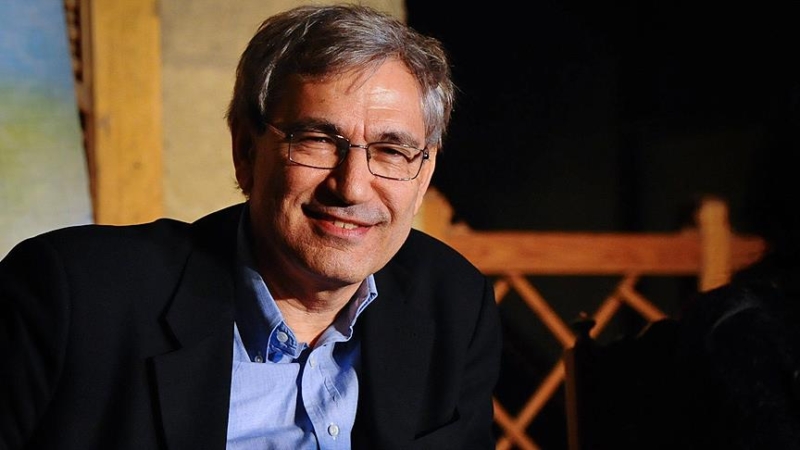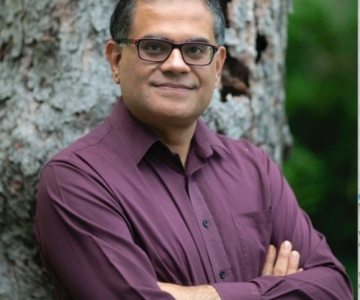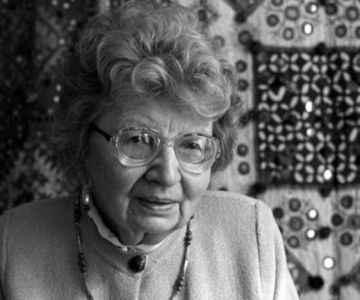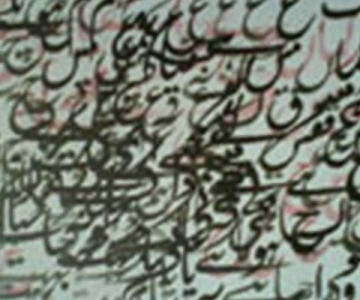The characters in my novel are groaning under the burden of universal ideas. Overtaxing yourself with powerful ideas is practically a Turkish passion
Orhan Pamuk, “who in the quest for the melancholic soul of his native city has discovered new symbols for the clash and interlacing of cultures” has won this year’s Nobel Prize for Literature.
On pure literary merits, Orhan Pamuk deserves this award. Politics, however, has marred this extraordinary achievement of a fearless writer. The primacy of media in our times confounds opinion and ‘truth’ itself. That Pamuk denounced the fatwa against Rushdie is not the point. Calling for a public debate on the treatment of Armenians by pre-modern Turkish state was no sin, nor a call for national humiliation as the hardliners in Turkey claim. Nevertheless, given the attitudes of European Union bigwigs to Turkey, often bordering on racism and Islamophobia, Pamuk’s award is seen by many as undermining Turkey that has done more than its capacity to undertake reform.
What a pity that Orhan Pamuk’s genuine brilliance as a writer has been overshadowed by European prejudice, media naivete as well as reinforcement of bias; and above all Turkey’s bruised self-image further complicates the reality.
Pamuk recreates and redefines the magic of Istanbul, a fabulous spot on the globe. He digs the past, ruffles the present and swims with the tense undercurrents of a “secular” Turkey that continues to negotiate its Islamic identity. His novels therefore acquire a larger meaning where art and religion confront politics and love founders at the rocks of power and compromise. Small wonder that his books have been so popular globally and his technique adding additional dimensions to what is known as a “novel”.
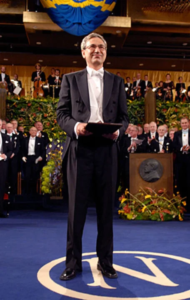
The Nobel Foundation 2006
Photo: Hans Mehlin | nobelprize.org
I am familiar with only two of his novels that were internationally acclaimed much before the Nobel Prize. Pamuk’s Snow, set in the north-eastern city of Kars, narrates the tensions between Turkey’s urban secular elite and their under-estimated Islamist opponents. The novel unpacks themes of religion, political identity, melancholy and betrayal.
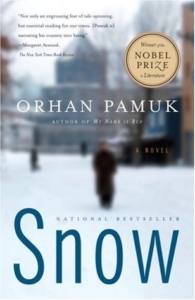 My Name is Red, a murder mystery and a love story at the same time explored the perils of religious mores of sixteenth-century Istanbul. A unique style of novel writing that intersected on art, religion, love, and power.
My Name is Red, a murder mystery and a love story at the same time explored the perils of religious mores of sixteenth-century Istanbul. A unique style of novel writing that intersected on art, religion, love, and power.
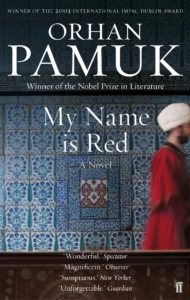
Pamuk lives for his writing. Despite his training as an architect, he chose to be a full-time writer. Committed and obsessed with his passion for writing he aptly remarked in an interview, “I don’t really fit into the mould, though. I chose art rather than the positivist-rationalist life of an engineer, the one that was meant for me.”
Pamuk got what he deserved and let’s hope that his recognition is viewed in the right perspective.
It is not just Pamuk but Istanbul and its rich mosaic of cultures and movements that has been rewarded.
